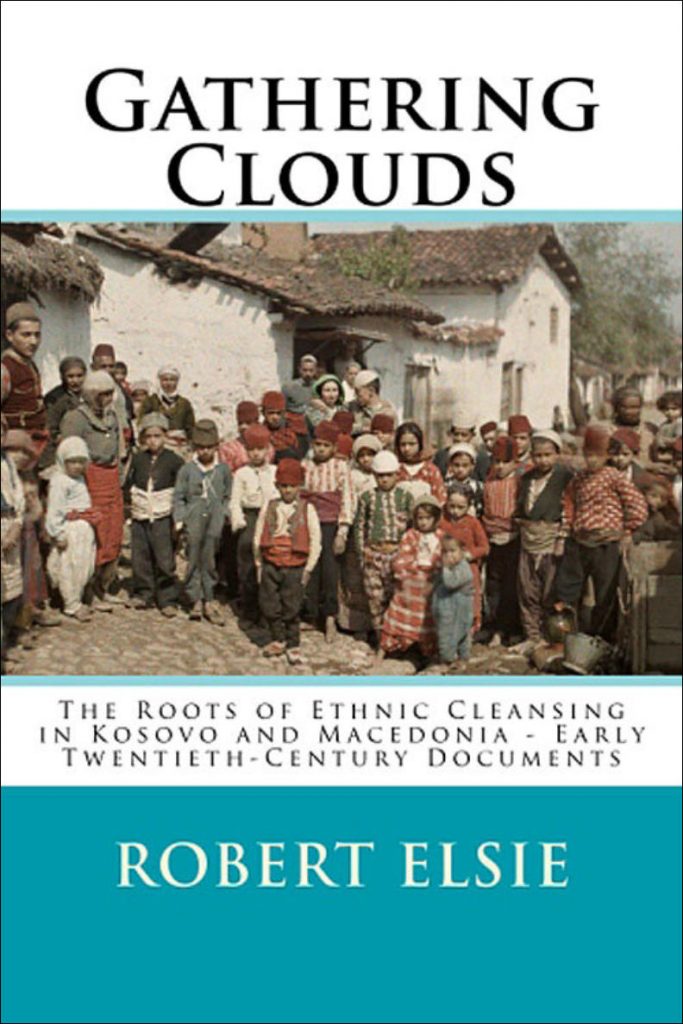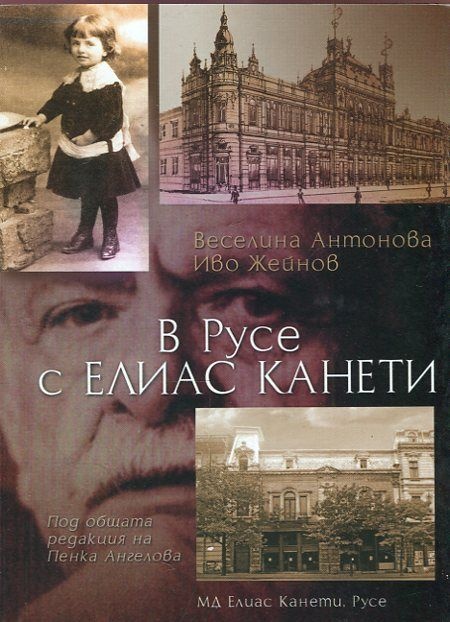“Den Nobelpreis sollte man endlich abschaffen.”
Das sagte Peter Handke im Jahr 2014, und ich stimme in diesem Fall vollkommen mit ihm überein. Mit der Verleihung des Literaturnobelpreises an diesen Autor ist dieser Preis endgültig obsolet geworden.
Mit dem literarischen Schaffen Handkes konnte ich nie viel anfangen; und wenn er jetzt von manchen als “genialer Stilist” gefeiert wird, habe ich den Eindruck, das solche Leute nicht viel von ihm gelesen haben werden. Das Preziöse und Gestelzte seines Stils sollte doch wohl jedem, der auch nur ein Buch von ihm gelesen hat, aufgefallen sein. Und ein tiefer Denker ist Handke sicher auch nicht, mehr als einmal schrieb ich “Schwafler!” oder “Dampfplauderer!” an den Rand – zugegeben, manche halten solche Stellen offenbar für “poetisch”. Und die Dialoge, die Handke für Wim Wenders’ Der Himmel über Berlin geschrieben hat, strotzen nur so von Stilblüten und grandiosem Kitsch.
Ich will hier aber keine Stilkritik betreiben, sondern vielmehr ein paar Beobachtungen mitteilen, die ich im Zusammenhang mit der öffentlichen Debatte um Handkes Aussagen zu Serbien und seiner Rolle in den Jugoslawien-Kriegen gemacht habe.
Dabei wurde von denjenigen, die glauben, Handke habe den Nobelpreis wegen dieser Rolle nicht verdient, geltend gemacht, dass er sich bewusst und über Jahre hinweg zum Apologeten des aggressiven serbischen Nationalismus und Chauvinismus gemacht habe, dass er die Nähe von Kriegsverbrechern gesucht habe, sich mit Karadžić und Milošević getroffen und ihnen Texte gewidmet habe, dass er muslimische und kroatische Opfer und ihre Familien verhöhnt und entwürdigt habe, den Völkermord in Srebrenica erst in Frage gestellt, dann relativiert und entschuldigt habe, und einiges mehr.
Diejenigen, die die Auszeichnung Handkes für gerechtfertigt halten, verweisen auf seine angeblich überragende Bedeutung als Autor; die von seinen Gegnern beanstandeten Punkte werden entweder geleugnet, als vereinzelte, nicht relevante “umstrittene” Aussagen, die aus dem Zusammenhang gerissen wurden heruntergespielt, oder es wird auf die angebliche Trennung zwischen literarischem Werk und Autor hingewiesen, die man beachten müsse. Etwaige umstrittene Aussagen des Autors seien für die Beurteilung seines Werks unerheblich und würden dieses nicht beschädigen. Der Nobelpreis sei ein Literaturpreis und kein Preis für die politischen Auffassungen seines Autors. Ferner wurde den Handke-Gegnern generell unterstellt, sie kennten sein Werk nicht und würden eine Hetzjagd auf ihn betreiben. Vereinzelt wurde geäußert, Kritik an Handke sei “widerlich” bzw. einzelne Kritiker, die so etwas sagten seien “einfach nur widerlich”.
Die zum Teil scharfe Kritik an Handke kam für mich nicht überraschend. Als jemand, der 5 Jahre in Ex-Jugoslawien gelebt hat und viele Menschen verschiedener ethnischer Gruppen dort und deren Leidensgeschichte kennt, habe ich das umfangreiche Werk Handkes zum Thema Serbien (es taucht in wenigstens 6 seiner Werke als Hauptthema auf, außerdem gibt es Erzählungen, Essays, Interviews – er hat sich geradezu obsessiv an diesem Thema abgearbeitet.) über viele Jahre mit zunehmendem Unbehagen verfolgt. Die an Handke jetzt gemachten Vorwürfe treffen aus meiner Sicht vollkommen ins Schwarze.
Zum Argument, der Literaturnobelpreis sei nur ein Literaturpreis und Handkes umstrittene Aussagen irrelevant, muss darauf hingewiesen werden, dass das so nicht stimmt. Der Literaturnobelpreis ist nach dem Willen seines Stifters ein Preis der dem Autor verliehen werden soll, der „das Vorzüglichste in idealistischer Richtung geschaffen hat“. Worin die “idealistische Richtung” von Handkes Serbien-Werken liegen soll, konnte mir bisher leider niemand erklären. Aber vielleicht kommt das ja noch.
Die angebliche Trennung von Autor und Werk – nun ja, der Autor hat ja das Werk produziert, es gibt also wohl das wieder, was er denkt und glaubt. Handke ist ja nicht der erste Autor, der Dinge gesagt oder geschrieben oder getan hat, die vollkommen unakzeptabel sind. Aber weder ein Celine noch ein Pound haben den Nobelpreis bekommen, und zwar aus gutem Grund. (Dass das Nobelpreiskommitee aber auch schon in der Vergangenheit unakzeptable Autoren ausgezeichnet hat, muss man allerdings auch festhalten. Man denke nur an Pablo Neruda, ein Mann der viele Jahre lang Teil der stalinistischen Mordmaschinerie war.) Und Handkes umstrittene Aussagen stehen ja in mindestens einem halben Dutzend seiner Werke, ein nicht ganz belangloser Teil seines Werkes.
Nachdem die Auseinandersetzung in den Medien nunmehr schon seit Wochen andauert, sollte hier vielleicht auf zwei Artikel aufmerksam gemacht werden, die ganz gut das zusammenfassen (mit ausführlichen Textzitaten von Handke), was es an seinen Serbien-Texten zu beanstanden gibt.
Einige der Handke-Befürworter machen in dieser Phase leider einen wenig angenehmen und intellektuell oft nicht gerade redlichen Eindruck. Nachdem erst behauptet wurde, die Handke-Kritiker kennten sein Werk nicht, wurden jetzt, insbesondere nachdem Michael Martens (FAZ) und Alida Bremer (Perlentaucher) umfangreiche Nachweise für das chauvinistisch-revisionistische Engagement Handkes geliefert haben, weinerlich behauptet: “Nennen Sie das eine intellektuelle Debatte, mir einfach so Zitate vorzuhalten!” (Ein bekannter Handke-Biograph äußerte sich so sinngemäß auf Twitter.) Jetzt heißt es: “Hetzkampagne, wie unfair!”, und “Der arme Mann!”.
Nein, werte Handke-Verehrer, das Zitieren und leidenschaftslose Analysieren der Handke-Texte ist keine Hetzkampagne. Es ist unangenehm für den Genozid-Relativierer Handke, der in dem Licht seiner eigenen Texte gezeigt wird. Wenn es an der ganzen Angelegenheit etwas Widerliches gibt, sind es die Texte Handkes, nicht das Sich-ins-Erinnern-Rufen dessen, was er seit vielen Jahren gesagt, geschrieben und getan hat.
Was mich bei der Diskussion um Handke besonders schockt, ist etwas wozu ich ein wenig ausholen will. Geschichtsrevisionismus und extremer Nationalismus, der auch vor der Vertreibung und Ermordung ganzer Völker nicht haltmacht, sind ein grosses Problem in ganz Osteuropa. Über die versuchte Rehabilitierung einer faschistischen und antisemitischen Organisation, für die sich ein bulgarischer Schriftsteller kürzlich einsetzte, habe ich an anderer Stelle berichtet. In Rumänien, wo der Antisemitismus unter Intellektuellen immer besonders stark ausgeprägt war, macht der Schriftsteller Paul Goma seit vielen Jahren Stimmung gegen die Juden. Die Juden seien nun mal die Erfinder des Kommunismus und der Völkermord der Rumänen an den Juden im 2. Weltkrieg – den er abwechselnd mal leugnet und dann wieder zugibt, aber relativiert – sei daher als Racheakt zu sehen, und sei daher gewissermaßen verständlich und entschuldbar.
Handke argumentiert analog ganz genauso, wenn es um den Massenmord von Srebrenica geht, den er abwechselnd leugnet, dann bezweifelt, dann zwar zugibt, aber relativiert (es waren angeblich “nur” 2000 bis 4000 Opfer, und es war auch kein Genozid, weil die Ermordeten ausschließlich Männer waren(!) – außerdem sei die Tat nur ein Racheakt gewesen für ein angebliches Massaker der “Muselmanen”. Die Täter-Opfer-Umkehr ist etwas, was Handke mit vielen Apologeten seiner Couleur gemeinsam hat.). Die Serben, die jahrelang die Einwohner Sarajevos terrorisierten und Tausende von ihnen durch Scharfschützen ermordeten werden gar mit Leuten, die eigentlich nur Indianer spielen wollten, verglichen! Das ist alles so erschreckend menschenverachtend, so bar jeder Empathie mit den Opfern (denen er im Tod sogar den Opferstatus abspricht – Opfer sind bei ihm die Serben) – dass es mir einfach nur den Atem verschlägt, wenn sich Menschen, die sich als Intellektuelle bezeichnen, sich nicht mit schärfsten Worten von solchen furchtbaren Äußerungen in seinem Werk distanzieren und es sogar begeistert feiern, wenn Herr Handke mit dem Literaturnobelpreis ausgezeichnet wird. Ich finde sowohl die Auszeichnung für Handke, als auch vieles von dem, was seine Verteidiger schreiben, schlicht und einfach zum Kotzen. – Pardon my French!
Wer sich über Strömungen unter serbischen Intellektuellen des 20. Jahrhunderts (darunter auch Ivo Andric) informieren will, in die sich Handke, der Apologet der ethnischen Säuberung einreiht, sei auf die untenstehende Veröffentlichung des Albanologen Robert Elsie hingewiesen, die auch die beiden Denkschriften des Sarajewo- Attentäters Vaso Čubrilović und das Gutachten von Andric zur ethnischen Säuberung enthält. Vieles von dem, was Handke seinen serbischen Bezugspersonen nachplapperte, hat seine Wurzeln in den Denkschriften Čubrilovićs, der in den 1980ern hochbetagt, wiederentdeckt wurde und dessen Plan zur ethnischen Säuberung das Drehbuch zu den Feldzügen der serbischen Militärs und Paramilitärs darstellte.
“Den Nobelpreis sollte man endlich abschaffen.” – Peter Handke hat Recht! (Das Preisgeld wird er aber sicher annehmen!)

Robert Elsie (Hg.): Gathering Clouds. The Roots of Ethnic Cleansing in Kosovo and Macedonia, Albanian Studies Vol. 4, Centre for Albanian Studies, London 2015





 Facebook
Facebook RSS
RSS Twitter
Twitter